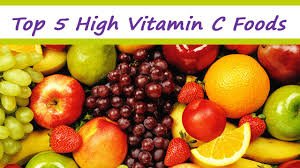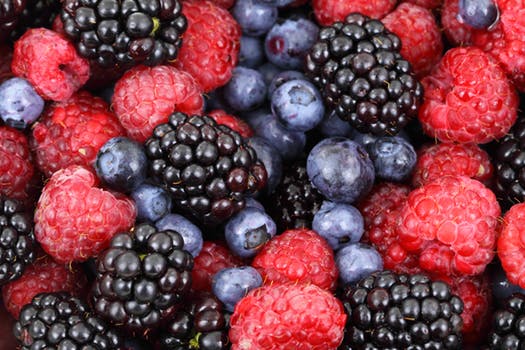Health Benefits of Vitamin C
Vitamin C Benefits: Vitamin C is crucial for the development and preservation of connective tissue. Vitamin C is important in the role of bone formation, the healing of wounds, maintaining the immune system, and gum health.
The B vitamins and folic acid all need Vitamin C to be able to be synthesized in the body. Cholesterol and bile acids need Vitamin C to be effective. In order for serotonin to be converted from tryptophan, the body needs adequate stores of Vitamin C.
Vitamin C is an antioxidant which means it protects the body from free radicals, and it protects the immune system. When someone has an allergic attack, Vitamin C comes to the rescue to lessen the severity of the allergen.
Vitamin C: Benefits, Food Sources, and Supplements
Vitamin C is extremely important in fighting off infections. There is evidence that Vitamin C plays a role in the management of other diseases such as diabetes, metal toxicity, and cancer.
Lypricel is rated one of the top-rated Vitamin C supplements.
Why Does the Body Need Vitamin C?
The body requires Vitamin C for normal biological functions. It lowers cholesterol by the conversion of bile acids.
Related Articles
Scurvy in Children
Vitamin C is responsible for iron to be absorbed in the gut by reducing ferric to ferrous state. Linus Pauling was the leader in the research of vitamin C, and its functions and uses.
Pauling recommended high doses of vitamin C to treat a myriad of diseases from the common cold to cancer. Large doses of vitamin C have been used to treat diseases such as cancer, cataracts, glaucoma, and heart diseases.
Which Vitamin C Supplement are the Best?
A deficiency of vitamin C is associated with anemia. This is because the body needs folic acid and Vitamin B12 to make red blood cells. Bleeding gums, scurvy, poor wound healing is also related to vitamin C.
This is because these diseases need vitamin C to maintain the immune system.
When someone has a vitamin C deficiency, the treatment is to give high dose vitamin C supplements. Toxicity is not a concern because vitamin C is water-soluble.
Vitamin C Rich Foods
- Vitamin C is found in :
- Citrus fruits
- Red and green peppers
- Tomatoes and broccoli
- Brussels sprouts and turnip
- Leafy vegetables
- Meats are a poor source of vitamin C
These are all vitamin C rich foods. These plant sources can have up to 5000 mg/100g of vitamin C.
In the GI tract, vitamin C is absorbed by active sodium-dependent vitamin C transporters.
How is Vitamin C Available to the Body?

The availability of vitamin C depends on if the GI (sodium) tract and the renal system are functioning effectively. Vitamin C taken orally is absorbed in the small intestine.
If there are any disorders involving small intestines, such as IBS or Crohn’s disease, vitamin C absorption can be compromised.
If someone has kidney disease, vitamin C levels are often decreased because the kidneys are unable to filter the vitamin properly.
Therefore, renal excretion and intestinal absorption control the amount of vitamin C that is available to the body. In low amounts, vitamin C is absorbed in the small intestine and reabsorbed from the kidney.
Vitamin C Deficiency Causes
Reduced vitamin C is often seen in the following cases:
- Stress
- Excessive alcohol intake
- Usage of antibiotics
- Smoking
- Fever and illness
- Exposure to heavy metals
- Painkillers
- Diarrhea
It is presumed that the high utilization of vitamin C in these disorders makes someone susceptible to low vitamin C levels.
Vitamin C and the Common Cold and Flu
Although vitamin C is known to be effective against a variety of diseases and disorders, the most common disorder that vitamin C is known for is to treat the common cold and flu.
Pauling suggested that the ingestion of 1–3 grams of vitamin C would prevent or treat the common cold. Some studies have also shown that vitamin C does not prevent the flu, but it lessens the severity of the symptoms.
Vitamin C and Wound Healing
Wound healing requires collagen and fiber in order to heal the damaged tissues. Many studies have been done to evaluate the role of Vitamin C in wound healing and the regenerations of tissue. As a nurse, I worked in a Wound Healing Center.
Many of our patients were taking vitamin C and zinc supplements. Patients with wounds need massive amounts of vitamin C because they need collagen. In the burn centers, patients get 500 mg to 1 gram a day to accelerate wound healing.

What are the Best Vitamin C Supplements?
I prefer Now Foods Vitamin C-1000 Sustained Release. Vitamin C (ascorbic acid) with rose hips delivers a powerful punch. Rosehips have many antioxidants and vitamin C. Rose hips also contain phenols, flavonoids, and vitamin E.
Another great choice is Majestic Pure Rosehip Oil for Face, Nails, Hair . This is an oil, and it is excellent for hair, nails, and the face. This oil will also give you a powerful dose of antioxidants. W need collagen and protein for our hair and nails to grow. This oil is an excellent source of vitamin C. This oil is pure and Natural – it is cold-pressed, fresh, and high quality with no additives or fillers.
Nature’s Way Vitamin C is another high-quality brand. This supplement has 25 mg of rose hips and 1000mg of ascorbic acid. This supplement comes in a capsule.
Raw Vitamin C are whole food supplements. This is a raw, whole food supplement. This supplement has 23 organically grown fruits and vegetables. There are no fillers or binders, and it is certified vegan.
Vitamin C Dosages
| Age | Male | Female | Pregnancy | Lactation |
|---|---|---|---|---|
| 0–6 months | 40 mg* | 40 mg* | ||
| 7–12 months | 50 mg* | 50 mg* | ||
| 1–3 years | 15 mg | 15 mg | ||
| 4–8 years | 25 mg | 25 mg | ||
| 9–13 years | 45 mg | 45 mg | ||
| 14–18 years | 75 mg | 65 mg | 80 mg | 115 mg |
| 19+ years | 90 mg | 75 mg | 85 mg | 120 mg |
| Smokers | Individuals who smoke require 35 mg/day more vitamin C than nonsmokers. | |||
Vitamin C Side Effects and Vitamin C Overdose.
- Headache
- Nausea
- Flushed feeling
- Diarrhea
[su_box title=”Conclusion” box_color=”#4a68e9″]Vitamin C is essential to your health. If you are unable to get at least 5 servings of vitamin C day, vitamin C supplements are perfectly fine to take.[/su_box]
Conclusion
In conclusion, the benefits of vitamin C cannot be overstated. This essential nutrient plays a crucial role in maintaining overall health and well-being. From its powerful antioxidant properties that protect against free radicals and oxidative stress to its role in collagen synthesis, immune function, and wound healing, vitamin C is truly a superhero among vitamins.
By incorporating vitamin C-rich foods into your diet or considering supplementation when necessary, you can experience numerous benefits. Boosting your immune system, reducing the risk of chronic diseases, improving skin health, promoting cardiovascular health, and even supporting mental well-being are just a few of the remarkable advantages that vitamin C offers.
Remember that while vitamin C is vital for good health, it’s always best to obtain nutrients from a balanced diet rather than relying solely on supplements. Incorporate a variety of fruits and vegetables into your meals, such as oranges, strawberries, broccoli, bell peppers, and kale, to ensure you receive adequate vitamin C along with other essential nutrients and fiber.
It’s important to note that everyone’s dietary needs and health conditions may vary, so consulting with a healthcare professional or registered dietitian is advisable before making any significant changes to your diet or supplementation routine.
In conclusion, by harnessing the power of vitamin C, you can enhance your overall health and well-being, supporting your body’s natural defenses and unlocking the many benefits this remarkable vitamin has to offer.
My name is Phyllis Robinson MSN, RN. I have been a Registered Nurse for 27 years in the Cardiac Intensive Care Unit. I am passionate about cardiac care and heart disease. I also want this blog to be an educational tool that people can refer to for traditional and alternative treatment. I will blog on heart disorders such as high blood pressure, congestive heart failure, cardiomyopathy, and high cholesterol.
I received my Nursing degree from Baltimore Community College.
I went on to receive my Masters in Nursing from Walden University
I have worked for almost 30 years in Critical Care with a focus on heart health. I am an advocate of preventive healthcare.






This is a great reminder. I like that my daily vitamin has a good dose of vitamin C but I am going to look for a good source for my children. Thanks for this post
Vitamin C is vital for our body, especially at this time of year! I think I should try Vitamin C food supplements to feel better in winter!